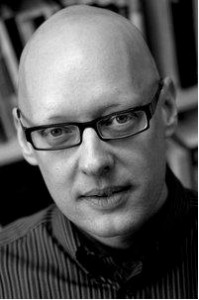 The sciences of cognition and culture are profoundly transforming our understanding of the origins and functions of religion. Both experimental work and evolutionary modeling have shown convincingly that evolutionarily stabilized patterns of human cognition and social life lead naturally both to beliefs in supernatural beings (gods, bodhisattvas, ancestors, and the like) and to the formation of supernaturally reinforced and authorized coalitions (churches, temples, religious traditions, and the like). The precise mechanisms of the birth of Gods and the formation of religious rituals and groups are still very much under debate (for example, it is not clear the extent to which the underlying cognitive mechanisms are selected for this religious function or whether the function is a side effect of cognitive characteristics that emerged for reasons unrelated to religion). but the direction of travel is quite clear.
The sciences of cognition and culture are profoundly transforming our understanding of the origins and functions of religion. Both experimental work and evolutionary modeling have shown convincingly that evolutionarily stabilized patterns of human cognition and social life lead naturally both to beliefs in supernatural beings (gods, bodhisattvas, ancestors, and the like) and to the formation of supernaturally reinforced and authorized coalitions (churches, temples, religious traditions, and the like). The precise mechanisms of the birth of Gods and the formation of religious rituals and groups are still very much under debate (for example, it is not clear the extent to which the underlying cognitive mechanisms are selected for this religious function or whether the function is a side effect of cognitive characteristics that emerged for reasons unrelated to religion). but the direction of travel is quite clear.
At this point, theologians (that is, religious intellectuals in any religious tradition or pursuing secular academic forms of inquiry into religious topics) are scarcely aware of these research results in the scientific study of religion and haven’t really begun to reflect on their implications for theological projects. But the question should be faced squarely: How should theologians respond to this new evidence about how human beings create gods and supernatural coalitions? What is theology after the birth of god?
Prof. LeRon Shults from the University of Agder in Kristiansand, Norway, is addressing this theme in a lecture on Wednesday November 9, 2011, beginning at 4:00pm in room B19 in 745 Commonwealth Avenue, Boston, 02215 (that’s the big lecture room in the basement of the School of Theology).
